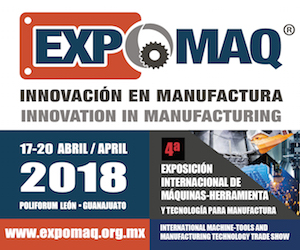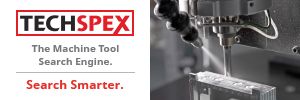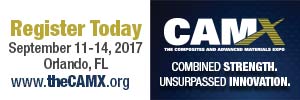
Shipping Manager collects package weights directly from electronic scales, generates packing/shipping documentation, displays current FedEx and UPS rates, produces end-of-day shipping reports, and more—all from within EnterpriseIQ ERP.

Displays like this from the IQMS touchscreen-based Heijunka module helps the shop floor automate load leveling based on EPEI calculations for designated pacemaker processes.
Related Topics:
- Digital Domain
Related Suppliers
IQMS
Fully integrated and completeness are a Holy Grail in the world of enterprise resource planning (ERP). This is especially true for IQMS (iqms.com), a supplier of EnterpriseIQ, which combines ERP with a full-blown manufacturing execution system (MES). Within this integrated system are the usual modules for manufacturing, warehousing, sales, distribution, financial management, supply chain manage-ment, and so on found in modern ERP. It also has industry-specific functions. For instance, the automotive slant includes serialized label generation, release control management, electronic data interchange, automated VIN generation, ISO 9001 and TS16949 tools, and both conventional and electronic Kanban support.
EnterpriseIQ is still an integrated system. And it’s still on the quest toward completeness: The most recent version incorporates the latest in mobile technology—plus odds-and-ends that make enterprise management so much easier, efficient, and profitable.
Broader mobile access
Real-time production monitoring anywhere, anytime, from a smartphone or a tablet? IQMS has an app for that. Think ERP on Android. Mobile EnterpriseIQ converts Android-based mobile devices into portable and substantially lower-cost workcenters. Line workers, production management, and quality managers can collect and view real-time data (such as part counts, cycle speeds, downtime, and job setup), analyze those data (such as perform statistical process control, SPC), make machine/scheduling changes, print work orders, clock in/out (both operator time and jobs), and digitally grant approvals, among other decision-making and production monitoring activities. The displays of machine performance and schedules include color coding and detailed graphs, while the user interface itself looks like any other Android app.
Several modules make up the Mobile EnterpriseIQ family, including customer relationship manager, document control, inventory control, labeling, production monitoring and reporting (work center and process), SPC, time and attendance, and warehouse management. IQMS’ mobile app licenses are interchangeable; the Mobile App Manager tracks, assigns, and organizes app licenses for any IQMS supported Android device, and reorganizes them as required. Contrast this with what IQMS has had and still sells. “We’ve had Microsoft-based shop floor clients for 10 years, including touchscreens,†explains Glenn Nowak, vice president at IQMS. “The Android advantage is more in the reduction of the Microsoft licenses for client devices than in the portability of those devices. You’re saving $200 to $300 per device.â€
(Nielsen, the ratings organization, estimated that 51.8% of smartphone owners in the U.S. in 2012 will use an Android handset. For tablets, it’s still an Apple world. IDC, the technology research company, estimated the market share for Apple iPads will grow to 62.5% in 2012, while tablets running Google’s Android will slip to 36.5%. These numbers are all subject to change—dramatically—given the patent decision in August against Samsung, which is really a patent-infringement judgment against Android-based devices. And then there are the recently available tablets from Microsoft Corp. to consider, too.)
Broader stationary access
“Mobile products such as tablets are ideal for employees on the go, but not for work center operators who need a stationary device to input data and access ERP/MES information directly from their work stations,†continues Nowak. This is why IQMS also launched RTStation—an Android-based touch-screen device ruggedized for the shop floor. “Nobody is going to run away with an RTStation. It’s not going to slide in a briefcase too well,†he muses.
RTStation is a workcenter with a constant connection to EnterpriseIQ; just plug it into the corporate local area network and off it goes (in the production monitoring sense). RTStation works in real time, so there are no lag times or batch transfers. It graphically displays machine monitoring details (such as part counts and cycle speeds), and it lets operators print work orders, log rejects for production reporting, display job set-up information and other documents, perform SPC inspections, scan barcodes, print labels, clock in/out of jobs, and more.
RTStation runs the same apps that can run on an Android smartphone or tablet purchased from any retail store. However, unlike consumer-based tablets (and certainly mobile phones), RTStation includes Bluetooth, Ethernet, RS-232, USB, and even HDMI connectivity. With RTStation, barcode scanners, electronic scales, and other specialized manufacturing data collection devices can serve as data-entry points, and large-screen TVs from the local box store can be the displays.
Better cost and production management
“Shipping is a common headache for most manufacturers. Errors, price mis-quotes, improper packaging and other various shipping logistics all result in our clients devoting too much time to the shipping process,†says Nowak. Enter Shipping Manager, which uses web services to integrate FedEx and UPS with EnterpriseIQ. The real-time access ensures constantly updated rates, accurate shipping charges, and package tracking from these two freight carriers. It also eliminates data errors and increases shipping accuracy. Users can then view current shipping rates and select the most cost-effective shipping method—all from within the ERP. Shipping Manager automatically populates the package weight from electronic scales, as well as “ship to†addresses, accurate shipping charges, and tracking numbers, to packing slips and printed carrier-approved labels. The module also handles international shipments, generating commercial invoices that include multiple currencies, export declarations, and NAFTA certificates of origin. As needed, users can analyze shipment history and close shipments with a single mouse click from within EnterpriseIQ.
Also new is a Heijunka module for automated Kanban-based load leveling in shop floor operations. The module is a touchscreen-based system that levels production based on the every-part-every-interval (EPEI) calculations for designated pacemaker processes in production.
Last, a new option in EnterpriseIQ lets manufacturers choose to track and make accounting transactions based on the actual costs of manufactured products, vs. standard costing. (Actual costing directly benefits those companies following lean manufacturing practices and wanting to more-effectively compete in the supply chain.)








